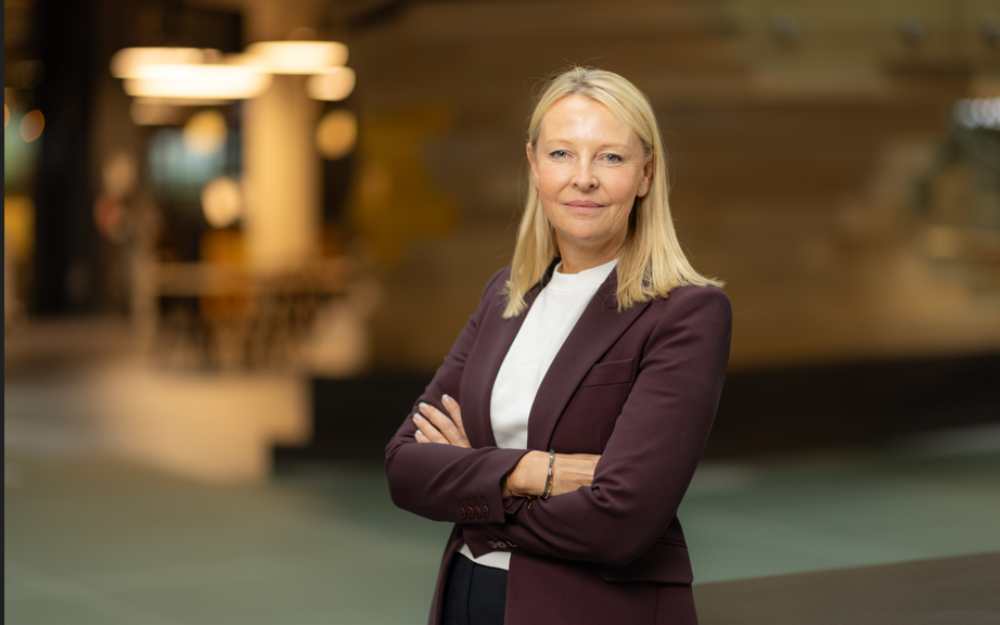Podcast Ep 287: Microsoft Ireland’s National Technology officer Kieran McCorry discusses how an AI workplace divide exposes the gap between boardroom and front line.
A stark digital divide is emerging in Irish workplaces as artificial intelligence adoption accelerates, with senior executives embracing the technology at more than double the rate of frontline employees, new research reveals.
Microsoft Ireland’s 2025 Work Trend Index, based on a survey of 1,000 Irish workers, found that 91% of board-level executives are using AI tools compared with just 39% of non-managers, highlighting what experts describe as a new form of workplace inequality.
“People are looking at AI and they see the value that it brings, and they want to use it”
The disparity comes as AI usage among Irish workers has surged 27% over the past year, with more than half believing the technology will broaden their career opportunities. However, uneven access is creating tension in organisations and driving record levels of job turnover as employees seek employers that provide better technological resources.
The AI haves and have-nots
You can also listen to the Podcast on:
“I think there is, to some extent, a little bit of a reluctance for businesses to commit and do something with AI,” said Kieran McCorry, National Technology officer at Microsoft Ireland. “What we tend to see is more limited, more controlled deployments of AI, and those deployments tend to be constrained to the most important people in the organisation.”
The research underscores Ireland’s struggle to democratise access to transformative technology at a time when the country faces acute skills shortages across multiple sectors. Small and medium enterprises appear particularly affected, with controlled rollouts often restricting AI access to senior management as pilot programmes.
This approach is creating what McCorry describes as a “have and have not situation” where frontline workers, despite often being younger and more technologically adaptable, find themselves excluded from tools that could significantly enhance their productivity.
The data reveals interesting generational patterns in AI adoption. Among those with access, 63% of men use AI compared with 47% of women, while younger millennials lead adoption at 62%, ahead of Generation Z at 55% and Generation X at 47%.
Workers are responding to these disparities with their feet. The survey found that 38% of respondents changed roles in the past year, up from 23% in 2024 and 19% in 2023. The primary drivers include work-life balance concerns, wellbeing issues, problems with direct managers, and crucially, insufficient access to flexible work options and modern tools.
“People are looking at AI and they see the value that it brings, and they want to use it,” McCorry explained. “If they’re in an organisation where they’re not enabled to use it, they think ‘I’m at a disadvantage here’ and they’re going to go somewhere else.”
The workplace transformation is having complex effects on employee wellbeing. Paradoxically, while burnout has declined to a three-year low of 39%, overall workplace happiness has dropped 13 percentage points to 65%. Analysts suggest this reflects workers becoming more discerning about their employment choices rather than accepting unsatisfactory conditions.
Among those who do have access to AI tools, the technology is proving transformative for productivity. The survey found that 91% of Irish AI users say the technology improves their work quality. Common applications include summarising information (52%), search functions (39%), brainstorming and problem-solving (36%), and producing and editing text (34%).
The productivity gains are tangible. McCorry noted that AI has enabled him to take on additional tasks that he would previously have declined due to time constraints. “I’m able to execute tasks more quickly using Copilot, for example,” he said. “I’m becoming more productive and more efficient, which I think is great.”
However, the research highlights a significant training gap. Some 61% of workers are calling for employer-led AI programmes, with nearly half believing they should be given more time to explore the technology independently. This demand for structured learning comes as Ireland lags behind EU leaders in industry-led training initiatives.
“We’re just about average, if that, in some cases we’re a little bit below average versus our EU 27 partners,” McCorry observed. “And frankly, that’s just not good enough. We need to be above average.”
Skills challenge goes beyond AI literacy
The skills challenge extends beyond basic AI literacy. Modern workdays are increasingly fragmented, with employees interrupted every two minutes and receiving an average of 117 emails daily. Some 57% of meetings are unscheduled, adding to the digital overload that AI is positioned to address.
Forward-thinking organisations are responding with comprehensive approaches that combine formal training with practical support. Successful implementations often include “prompt libraries” shared across teams, weekly AI tips, and champion networks that help colleagues navigate the technology.
“An hour a month would be a start,” McCorry suggested, emphasising that effective AI training need not be overly complex or resource-intensive.
Some companies have adopted a pragmatic “use it or lose it” policy for AI licenses, monitoring usage and reallocating access to employees who demonstrate engagement with the technology. This approach helps ensure resources reach workers who will maximise their potential.
The implications extend beyond individual productivity gains. As AI becomes integral to competitive advantage, organisations that fail to provide adequate access and training risk losing talent to more progressive competitors. The technology is increasingly viewed by workers as essential career infrastructure rather than an optional enhancement.
Looking ahead, the challenge for Irish businesses will be moving beyond limited pilot programmes to organisation-wide implementations that democratise AI access. This shift requires not just technological investment but also governance frameworks, security protocols, and comprehensive training programmes.
Catherine Doyle, general manager of Microsoft Ireland, summarised the imperative facing Irish organisations: “The message from workers is urgent and clear: they want the tools, support and skills to adapt. Organisations that embrace AI and invest in inclusive training will be best placed to lead in productivity, innovation and resilience.”
As Ireland competes globally for talent and investment, the country’s ability to close this digital divide may prove crucial to maintaining its position as a leading technology hub.
The question is whether organisations can adapt quickly enough to meet rising employee expectations and competitive pressures.
-
Bank of Ireland is welcoming new customers every day – funding investments, working capital and expansions across multiple sectors. To learn more, click here
-
For support in challenging times, click here
-
Listen to the ThinkBusiness Podcast for business insights and inspiration. All episodes are here. You can also listen to the Podcast on:
-
Spotify
-
SoundCloud
-
Apple






